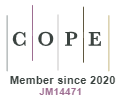The role of free ride apps in local employability: research with drivers working in a municipality in the interior of São Paulo
DOI:
https://doi.org/10.5585/iptec.v9i1.18719Keywords:
Hitchhiking apps, App drivers. Local economy.Abstract
This article was written based on the authors' interest in Hitchhiking apps as potential unemployment reducers in municipal levels. It was then decided to conduct a field research in the municipality of Botucatu, São Paulo's inland city, in search of relevant information for understanding how the apps influence the municipal economic dynamics, considering the diversity of profiles and objectives of drivers who adhere to the apps. To obtain data from drivers related to the interests of the research, forms were distributed through Google, where 58 drivers, between the ages of 22 and 64, answered two question sessions, first four about their genders, age groups, time of residence in Botucatu (to those who reside in the city) and the applications they work for and then five questions that they relate to the work itself, with the second session having a greater focus on analysis. Subsequently, the answers were analyzed in their entirety, and with that it was possible to explain some local trends of adhesion to the apps such as employability, interests in terms of work modalities, their goals and security. At the end of the questionnaire analyzes, the authors propose alternatives in terms of social sustainability for managing their apps by their respective companies, as well as the need for participation by other administrative sectors.
Downloads
References
Bezerra, L. E. R. (jul./dez. 2019). O trabalho do motorista de Uber – uma alternativa ao desemprego? Visão, 2(8), 01-17.
Castells, M. (2003). A galáxia da internet: Reflexões sobre a internet, os negócios e a sociedade. Rio de Janeiro: Zahar.
Ferreira, A. S., Freire, R., & Pavei, G. C. (2017). Uma Uber experiência? Elementos de valores e motivadores emocionais. VI SINGEP – Simpósio internacional de gestão de projetos, inovação e sustentabilidade, São Paulo – SP.
Ferreira, K. M., Méxas, M. P., Abreu, W. A., & Mello, P. L. (2016). Economia compartilhada e consumo colaborativo: uma revisão da literatura. XII congresso nacional de excelência em gestão, São Paulo – SP.
G1 Bauru e Marília. (2018). Depois de Bauru e Marília, Uber começa a operar em Botucatu a partir desta sexta. Recuperado de: https://g1.globo.com/sp/bauru-marilia/noticia/depois-de-bauru-e-marilia-uber-comeca-operar-em-botucatu-a-partir-desta-sexta.ghtml
Gil, A. C. (2008). Métodos e técnicas de pesquisa social (6a ed.). São Paulo: Atlas.
IBGE. (2020). Cidades e Estados: Botucatu. Recuperado de: https://www.ibge.gov.br/cidades-e-estados/sp/botucatu.html
Lemos, A. (2010). O futuro da internet: em direção a uma ciberdemocracia. São Paulo: Paulus.
Martins, I., Tinôco, D. S., Vieira, J. X., Rodrigues, T. L. (2015). Gestão de pessoas por competências: da construção epistemológica a sua referência como padrão de recursos humanos no setor público brasileiro, Rev. CCEI – URCAMP, 19(34), 63-74.
Medeiros, E. L., Vasconcelos, T. C., Vione, K. C., Santos, J., Ramos, D. R. P., & Gouveira, Y. B. (2018). Estresse e comportamentos de risco no trânsito, Temas em saúde, 18(1) 31-50.
Miller, C. (2019). O paradoxo do Uber: como o aplicativo libera e aprisiona seus motoristas na 'economia colaborativa'. Recuperado de https://www.bbc.com/portuguese/geral-50412910
Moura, A. L., & Rocha, C. L. C. (2017). Mulheres no volante. Recuperado de http://agemt.org/contraponto/2017/09/26/mulheres-no-volante/.
Prado, J. R. (1998). Iniciação à administração: Preceitos básicos. 5ª ed. São Paulo: Global.
Prefeitura de Botucatu. (2020). Apresentação. Recuperado de: http://www.botucatu.sp.gov.br/
Revista Exame. (2019). Apps como Uber e iFood se tornam “maior empregador” do Brasil. Recuperado de https://exame.abril.com.br/economia/apps-como-uber-e-ifood-sao-fonte-de-renda-de-quase-4-milhoes-de-pessoas/
Santos, F. A. N., Mayer, V. F., & Marques, O. R. B. (dez. 2019). Precificação dinâmica e percepção de justiça em preços: um estudo sobre o uso do aplicativo Uber em viagens. Tur., Visão e Ação, 21(3), 239-264.
Soares, S. S. D., & Câmara, G. C. V. (jul./dez. 2016). Tecnologia e subjetividade: impactos do uso do celular no cotidiano de adolescentes, Pretextos – Revista da Graduação em Psicologia da PUC Minas, 1(2), 204-223.
Vieira, M. M. G. (2020). A Globalização e as Relações de Trabalho. Curitiba: Juruá.
Wisniewski, P. C., & Esposito, L. A. (jun. 2016). Mobilidade urbana e o caso Uber: aspectos jurídicos e sociais da startup. PERSPECTIVA, Erechim, 40(150), 63-74.
Downloads
Published
How to Cite
Issue
Section
License
Copyright (c) 2021 Revista Inovação, Projetos e Tecnologias – IPTEC

This work is licensed under a Creative Commons Attribution-NonCommercial-ShareAlike 4.0 International License.






